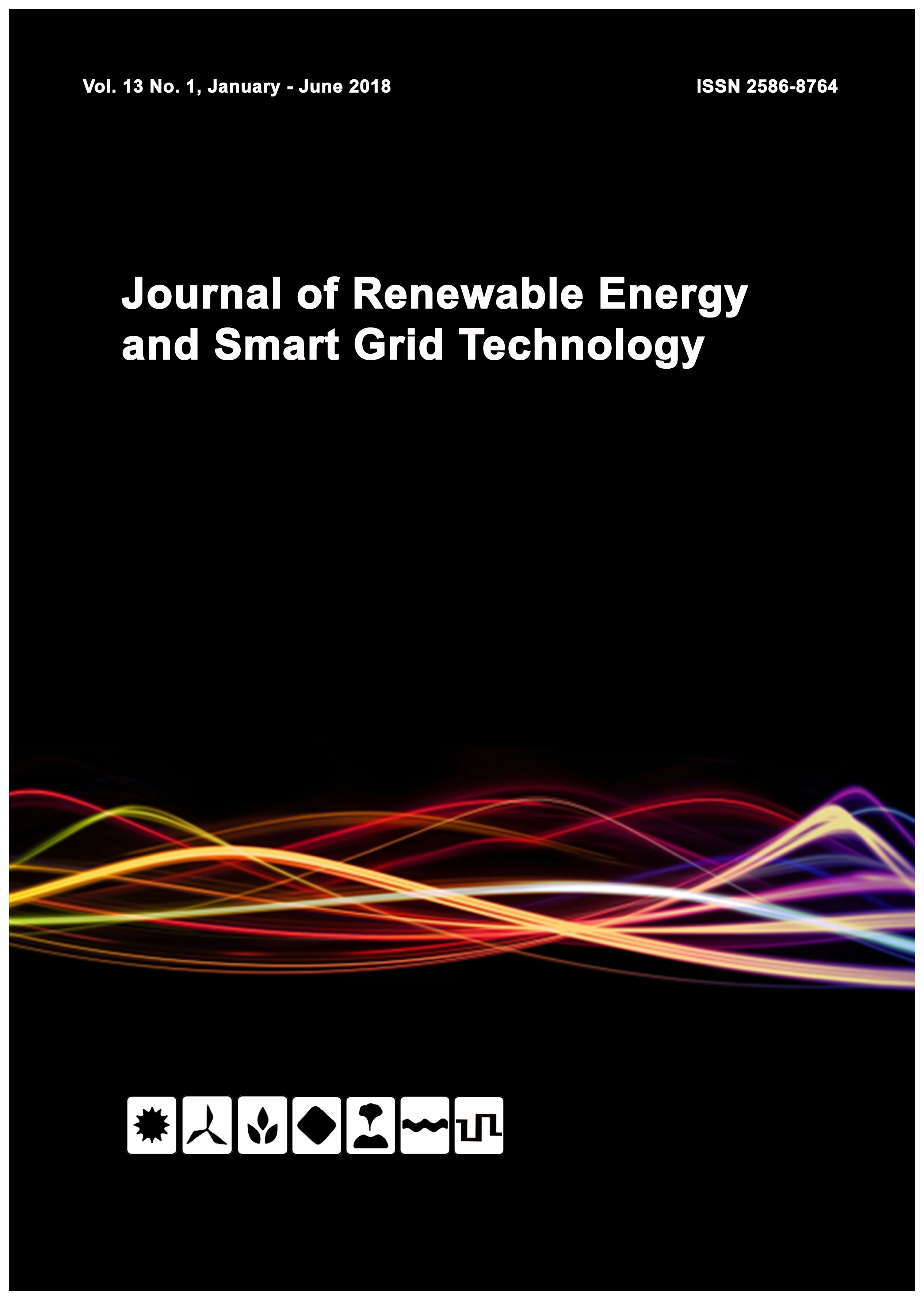Indicators and criteria for assessing achievement of renewable energy utilization in communities
Keywords:
Achievement indicators, assessment criteria, renewable energy, community energyAbstract
This research has objectives to develop indicators and criteria for assessing achievement in using renewable energy for communities. The researchers used Delphi technique for interviewing to collect opinions from experts who had strong experience in renewable energy utilization in the Northern region of Thailand. The 8 indicators for achieving assessment on community renewable energy utilization consisted of perception, attitude/motivation, learning, community potential, leaders, community and household participation, problem solving, and internal and external networks. The criteria for achievement assessment consisted of 4 levels of scores that range from 0 – 100 points. The 4 levels are Excellent, Good, Fair, and Poor, according to potential of the community. For success in supporting the use of renewable energy in communities, participation and cooperation from people in the community and external organizations are essential. These sectors need to get involved and play important roles to push forward and maintain sustainable production and utilization of renewable energy in communities.
References
Energy Policy and Planning Office, (2015); 4-year Operational Plans and Annual Operational Plans; www.eppo.go.th
Thippan Chaiyoopatham (2013); Important Characteristics of Rural People 2013: Based on the Basic Needs Data 2013; Community Data Warehouse; www.cdd.go.th/cddwarehouse/
National Statistical Office (2015); Executive Summary on Household Energy Use 2015. http://service.nso.go.th/nso/nsopublish/themes/files/Energy58.pdf.
Ministry of Energy (2015); Energy Situation of Thailand during January-December 2015; www.eppo.go.th.
Ministry of Energy; Community Energy Planning Project; Community Energy Planning Central Coordination Center; Policies and Strategies Division; Permanent Secretariat Office of Ministry of Energy.
Research and Counseling Institute of Thammasat University (2012); Project to assess results of the Community Energy Planning Project under the project to enhance capacity on complete energy administration and management for communities at sub-district level for the year 2011; Research Paper proposed to Policies and Strategies Division; Permanent Secretariat Office of Ministry of Energy.
Wisakha Phoochinda (2012); Measures for Sustainable Energy Planing of the Community in Thailand; NIDA Journal of Environment Management; Volume 8; Number 2; July-December 2012; pp. 75-87.
Somsak Meenakorn. (2012). A study on appropriate energy management form in Amphawa District, Samut Songkhram Province. Bangkok: Suan Sunandha Rajabhat University.
Wisakha Phoochinda and Sirisuda Nutimthong (2013); The management of renewable energy production for energy production in household and community levels: A case study of Phaluai Island; NIDA Journal of Environment Management; Volume 9; Number 2; 2013.
Wichai Joemcharoensuk (2013); Efficiency Enhancement on Community Energy Plan Administration for Provincial Energy; National Institute for Development of Teacher, Faculty Staff and Educational Personal
Saraporn Kriyapak (2009); Appropriate pattern for Community Energy Management; Master of Science (Environmental Management); National Institute of Development Administration (NIDA), Thailand.
Wisakha. P. (2009); The Development of Community Energy Management's Indicators using the Sufficiency Economy Theory: National Institute of Development Administration (NIDA), Thailand.
Wisakha Phoochinda, Vivat Keawdounglek (2013); Factors Affecting the use of Alternative Energy in Community a Case study of Community in a Central Region of Thailand; Srinakharinwirot University Journal of Science and Technology; Year 5; Volume 10; July-December 2013; pp.20-35.
Downloads
Published
How to Cite
Issue
Section
License
All copyrights of the above manuscript, including rights to publish in any media, are transferred to the SGtech.
The authors retain the following rights;
1. All proprietary rights other than copyright.
2. Re-use of all or part of the above manuscript in their work.
3. Reproduction of the above manuscript for author’s personal use or for company/institution use provided that
(a) prior permission of SGtech is obtained,
(b) the source and SGtech copyright notice are indicated, and
(c) the copies are not offered for sale.










